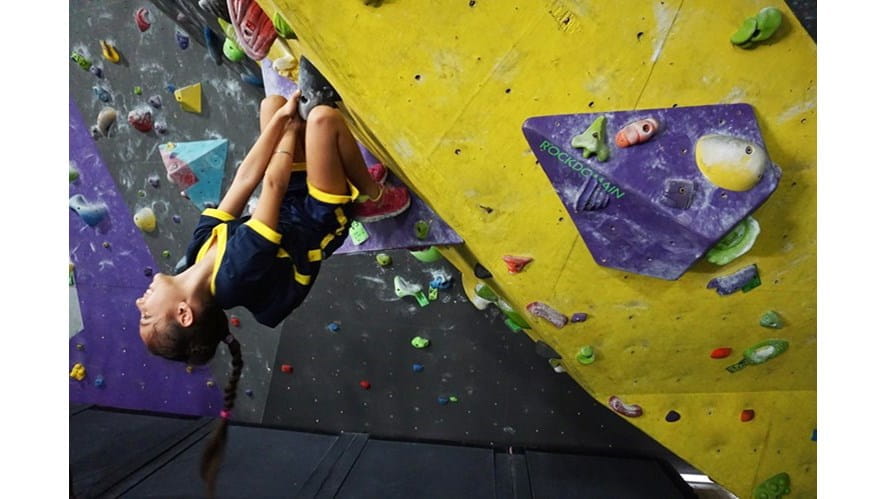Dr Erik FAQs: I think my child has COVID-19. What should I do next?
Dr Erik Fleischman is an STA parent and an Infectious Diseases/Regenerative Medicine specialist from the USA. He has been working with epidemic diseases around the world for nearly 30 years including HIV/AIDS, Ebola, H1N1, SARS, MERS, Tuberculosis, Malaria and Hepatitis. Dr Erik has agreed to answer FAQs from the STA community...
Dr Erik Fleischman is an STA parent and an Infectious Diseases/Regenerative Medicine specialist from the USA. He has been working with epidemic diseases around the world for nearly 30 years including HIV/AIDS, Ebola, H1N1, SARS, MERS, Tuberculosis, Malaria and Hepatitis. Dr Erik has kindly offered to answer Covid related FAQs from the STA community...
I think my child has COVID-19. What should I do next?
Hopefully the increased vaccination of adults (and children, if you so choose) will decrease the amount of cases of COVID-19 that occur in our children. Still, it is highly likely that we will see some cases occur. If you have concerns that your child has developed COVID-19 here is a short primer on what you should do next.
Firstly, don’t panic! As we say in Medicine during an emergency: Check your own pulse first!
Children are the least likely to get severe COVID-19 infections and rarely require hospitalization. They have the lowest death rate of all groups from COVID-19 -- probably even lower than the flu.
Your child will most likely present with a high fever which could be from 38-40 degrees. He or she may feel tired and cranky, maybe a bit achy. There may or may not be a dry cough. With COVID-19, the cough usually develops later- a few days after the fever. In some cases there can be a faint red rash on the body and there will likely be a loss of appetite. Most of us have been through this with our children when they’ve caught the flu. There are many similarities and in general it should be treated and managed the same way: help to suppress the symptoms.
-
Paracetamol and Ibuprofen children’s preparations for fever and ache
-
Cough syrup for the cough (Dextromethorphan and Guaifenesin medicines are helpful
-
Vigorous hydration with water, tea and electrolytes (Gatorade, etc.)
-
Vitamins B, C, D3 and Zinc have been shown to increase the immune response and shorten illness
In children the illness usually lasts 3-5 days, but there can be a dry nagging cough that can last longer- even up to a few weeks after the child has recovered. This is from the inflammation of the virus usually in the upper airways. These symptoms can be exaggerated when the child is speaking, drinking hot and cold liquids and sometimes when eating. It can be treated with cough medicines and Ibuprofen if needed. It will eventually resolve and does NOT mean that COVID-19 is still present! In most children after 10 days a recheck of the COVID-19 PCR test (the nasal or saliva swab) will return to NEGATIVE (normal). To be safe we recommend 14 days of isolation to be sure. Effects of post-viral inflammation can last longer than this, especially in adults.
When should I be concerned enough to bring my child to the hospital?
The most damaging aspect of COVID-19 is when it enters the lungs and becomes a pneumonia. It usually affects both sides of the lungs (as opposed to a bacterial pneumonia which is usually one-sided). These are the cases (albeit rare in children) that we read about requiring hospital stay, ICU and ventilator admissions.
The signs to worry about are:
-
If your child is weak and not responsive or doesn’t seem to wake easily
-
Shortness of breath where he or she is struggling and cannot seem to catch a breath
-
Severe deep, wet-sounding cough
-
If the child cannot eat or drink for a day or more and becomes dehydrated and weak
These are the most common reasons for children to require hospital medical treatment and in these cases, earlier medical attention is better. Doctors will use medicines to improve the function of the lungs in most cases: Cortisone pills or injections, medical inhalers and antibiotics to suppress other harmful co-infections that might be present. Since the start of COVID-19, management of the infections has improved with death rates and hospital stays improving significantly in Western modern settings. Children still remain at the lowest risk of severe disease.
As parents, we will usually over-react. It is an emotional response and a valid one! We love our children and want to protect them from any possible harm. I still overreact with my children even as a doctor treating severe infections for over 30 years. When it comes to children we have a difficult time being objective. If you have concerns, call your doctor or local hospital for advice. Use your home ATK test first. They have a 95% confidence accuracy if it is done during the time of virus replication.
If you decide to bring your child to the hospital please make sure they have two masks in place and keep them as distant as possible from others to prevent COVID-19 spread. Another good idea is to check with your medical insurance to see if you have a Telemedicine opportunity as this can answer 90% of your concerns quickly and easily.







